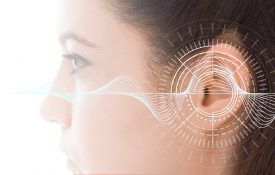-
Even minor stress can impact long-term health, study warns
That exposure to stress is a risk factor for many health problems, such as cardiovascular issues, anxiety and depression, and chronic pain, is a familiar idea. Yet we may think that it's only certain kinds of major stressors — such as getting fired, going through a breakup, or undergoing surgery — that significantly impact our lives. But, recent research explains that even small stressors can harm our long-term health if we hold on to how they make us feel. For example, a misunderstanding with a friend today might lead to health issues later in life if we let this stress factor carry over into the next day.
-
The Myth of ‘Learning Styles’
In the early ‘90s, a New Zealand man named Neil Fleming decided to sort through something that had puzzled him during his time monitoring classrooms as a school inspector. In the course of watching 9,000 different classes, he noticed that only some teachers were able to reach each and every one of their students. What were they doing differently? --- In other words, “there’s evidence that people do try to treat tasks in accordance with what they believe to be their learning style, but it doesn’t help them,” says Daniel Willingham, a psychologist at the University of Virginia.
-
The person who’s best at lying to you is you
In 2008, the psychiatrist Stephen Greenspan published The Annals of Gullibility, a summary of his decades of research into how to avoid being gullible. Two days later, he discovered his financial advisor Bernie Madoff was a fraud, who had caused Greenspan to lose a third of his retirement savings. This anecdote, from a presentation by University of Michigan social psychologist David Dunning, due to be presented at the 20th Sydney Symposium of Social Psychology in Visegrád, Hungary in July, highlights an unfortunate but inescapable truth: We are always most gullible to ourselves.
-
How To Recognize And Overcome Your Biases
Almost every day, there's at least one story in the news that involves racism, sexism or another kind of bigotry. But when you hear those stories, do you think, "Well, that's not me"? Turns out, even among the best-intentioned people, unconscious biases can exist. So how can we identify these biases, and is it possible to overcome them? "You can learn to address them — I'm not sure you unlearn them," Patricia Devine (@DevineLab), professor of psychology at the University of Wisconsin Madison, tells Here & Now's Jeremy Hobson. Part of the reason why is because biases are learned at a young age, Devine says.
-

New Research From Psychological Science
A sample of research exploring certainty in advice giving, boundary conditions for growth mindset effects, polygenic scores and criminal offending, and strategic modulation of mind wandering.
-

Imagining an Object Can Change How We Hear Sounds Later
Research shows that you don’t need to see an actual object to experience the “ventriloquist illusion” and its aftereffect. Simply imagining the object produces the same illusory results.

